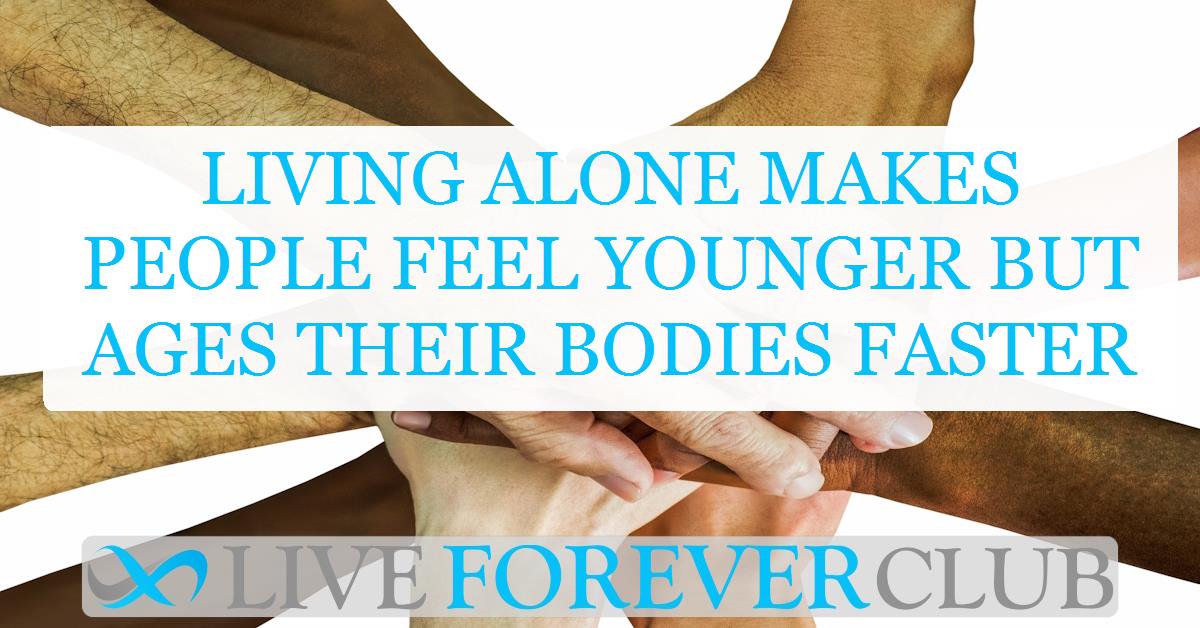Ageing is a natural process that affects every aspect of life. While genetics and lifestyle choices play a role, social connections also shape how people age. Relationships, community engagement, and emotional support influence both how old individuals feel and how their bodies respond to the passage of time.
Researchers have long studied the connection between social interaction and health, but a recent study sheds new light on how different aspects of social life affect ageing. The findings suggest that social engagement not only influences psychological well-being but also has a measurable impact on biological ageing. Some individuals may feel younger than they are, yet their bodies might be ageing faster due to social isolation or weak support networks.
Understanding how social relationships shape ageing can help individuals and policymakers develop better strategies for promoting well-being. Strong social connections may not only improve mental health but also slow the physical decline associated with ageing. This makes social engagement as vital as diet and exercise in maintaining health over time.
Living Alone and the Ageing Process
Many older adults live alone, whether by choice or circumstance. While some people thrive in solitude, others experience loneliness and reduced interaction with family and friends. The study found that living alone has a complex relationship with ageing, affecting both perceived and physiological age.
People who live alone often report feeling younger than their actual age. This could be due to the independence and self-reliance required to manage daily life. Living alone demands a certain level of activity and engagement, which may contribute to a sense of vitality. However, while individuals may feel young, their biological markers tell a different story.
The study (using data from 7,047 adults aged 50+ in the English Longitudinal Study of Ageing) revealed that those who live alone have a physiological age that is, on average, 1.9 years older than their chronological age. This suggests that the absence of regular social interactions may take a toll on the body. The lack of companionship could contribute to stress, poor health habits, or even chronic inflammation, all of which accelerate the ageing process.
Social Isolation and Its Hidden Effects
Social isolation differs from living alone. Some people live alone but maintain strong social networks, while others experience a lack of meaningful interactions despite having family or acquaintances. Social isolation, defined as infrequent contact with friends or relatives, has a direct impact on ageing.
The study found that those who experience high levels of social isolation tend to have a physiological age that is 1.2 years older than their chronological age. This suggests that the body reacts negatively to prolonged periods of low social engagement. Reduced interactions may lead to lower physical activity, fewer cognitive challenges, and an increased risk of mental health issues, all of which contribute to faster ageing.
Interestingly, individuals who reported being socially isolated still felt younger than their actual age. This contradiction highlights an important psychological factor. While people may not consciously recognize the effects of isolation on their health, their biological systems reflect the hidden stress of social disconnection. This underscores the need for greater awareness of how isolation affects not just mental well-being but also physical health.
Role of Social Integration in Ageing
Beyond individual relationships, broader community involvement plays a key role in ageing. Social integration refers to participation in community activities, cultural events, and social groups. Being part of a community provides mental stimulation, emotional support, and a sense of belonging, all of which contribute to overall well-being.
The study found that people with low levels of social integration showed patterns of accelerated biological ageing. Those who were less engaged in social activities had a physiological age that was 2.1 years older than their chronological age. This suggests that meaningful engagement in social life has a direct impact on physical health.
Interestingly, social integration did not significantly affect how old people felt. While being involved in community activities may not necessarily make someone feel younger, it does contribute to better long-term health. This highlights the importance of encouraging participation in clubs, volunteer work, and cultural events as a way to promote healthy ageing.
The Protective Power of Social Support
Emotional support plays a crucial role in ageing. Having friends, family, or close companions to rely on during difficult times can reduce stress and improve overall well-being. The quality of relationships may be just as important as their quantity when it comes to health outcomes.
The study found that individuals with low social support had a physiological age that was 1.6 years older than those with strong support networks. This suggests that having people to turn to for help and companionship can significantly slow down the ageing process. Emotional support may help regulate stress hormones, encourage healthy behaviors, and provide motivation for staying active and engaged.
However, loneliness—a subjective feeling of being alone—did not have a clear link to either perceived or physiological ageing. This suggests that it is not simply the feeling of loneliness that affects ageing but rather the actual presence or absence of supportive relationships. Quality matters more than perception when it comes to the impact of social support on health.
Disconnect Between Perceived and Physiological Age
One of the most intriguing findings of the study was the lack of correlation between perceived and physiological ageing. Many people felt younger than their actual age, yet their biological markers indicated faster ageing. This suggests that subjective feelings do not always align with the body’s physical state.
Only 8% of participants perceived themselves to be older than their chronological age, while 67% were biologically older according to physiological markers. This highlights a potential blind spot in how people assess their own ageing. Individuals may not notice the physical toll of social isolation, living alone, or weak support networks.
The study found that people who lived alone and those who were socially isolated often felt younger than their age. This could be due to psychological coping mechanisms, where individuals justify their circumstances by focusing on the positives. Some may embrace solitude as a sign of independence, while others may underestimate the long-term effects of reduced social contact.
This disconnect suggests that interventions promoting social engagement should not rely solely on self-perceived well-being. While individuals may not feel the immediate effects of isolation, their long-term health could still be at risk.
Strengthening Social Connections for Healthy Ageing
Given the strong link between social relationships and biological ageing, it is essential to promote social engagement among older adults. Encouraging community involvement, fostering strong relationships, and providing support networks can help individuals maintain better health as they age.
Public health efforts should focus on increasing awareness of the importance of social connections. Community programs that promote social interaction, such as group activities, volunteering, and support groups, can help individuals maintain strong relationships. Policies that encourage social inclusion in retirement communities, workplaces, and neighborhoods can also have long-term benefits.
Future research should explore ways to strengthen social connections and assess their long-term impact on ageing. Understanding the mechanisms through which social engagement affects health can help develop targeted interventions. By prioritizing social well-being, individuals can take proactive steps toward ageing in a healthier and more fulfilling way.
Ageing is not just about genetics or lifestyle choices. Social relationships shape how people experience and navigate the ageing process. While feeling young can be a positive psychological trait, maintaining strong social connections is essential for overall health. Individuals, communities, and policymakers must recognize the value of social engagement in ensuring a healthier and more vibrant ageing experience.
The study is published in MedrXiv. It was led by Andrew Steptoe and team from Department of Behavioural Science and Health, UCL, UK.







